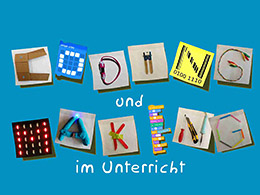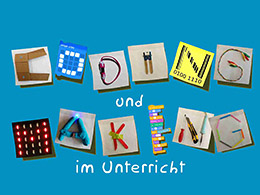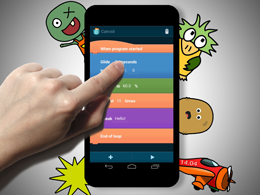Our article about „From refugee to programmer? A framework for a collaborative coding program for higher education institutions“ got published in the Journal of Research in Innovative Teaching & Learning.
Abstract:
Purpose
The purpose of this paper is to share the lessons learned in teaching programming skills to refugees during a time when circumstances were changing quickly and constantly and the needs of the target group were not well known.
Design/methodology/approach
The integration of refugees poses serious challenges for the hosting society’s education system. A large number of refugees can put a strain on all kinds of public resources, and difficulties with differences in languages, previous curricula, falling behind due to having to spend time outside of education, and psychological traumas have to be expected. In response to the refugee crisis and in order to manage mass migration, the adaptive nature and rapid development of civic approaches can contribute to overcoming some of these challenges. To evaluate the impact of civic approaches, the authors have paid attention to refugees{code} an Austrian coding school for refugees which was developed by the civic community and which shows great potential in terms of providing rapid, innovative and adaptive kinds of educational support for refugees, as well as helping to combat the lack of programmers in the Austrian job market.
Findings
As the great potential that initiatives like refugees{code} have for education, there are also substantial challenges. As we learned from the first course, course completion rates were very low. Therefore, it is important to build an infrastructure and a learning environment around the course. This learning environment includes providing mentoring and support, creating spaces where participants can learn. It was also found that having a pedagogically trained staff who is sufficient in the English language, too, is necessary to cater to a heterogeneous group. Also varying teaching strategies according to the needs and skills of the learner is necessary. One of the issues that confronts projects like refugees{code} is also receiving legal status. The collaboration with universities and colleges can be greatly helpful because they are already familiar with the structure of public authorities as well as with heterogeneous groups. Initiatives like refugees{code} are agile and flexible and know how to take advantage of that. The authors conclude that bringing successful education to heterogeneous and culturally different groups is multi-faceted. It is not something any individual organization or project can do; it can only be the result of a system of different actors working together with traditional educational institutions.
Originality/value
This research study reports on two courses of programming for refugees and seeks to offer practical advice for further research and for the implementation of such courses into the educational system. Therefore a framework is proposed which should be taken into account in case of doing similar work.
[article @ Journal’s Homepage]
[article @ ResarchGate]
Reference: Wolf, D., Ebner, M. (2018) From refugee to programmer? A framework for a collaborative coding program for higher education institutions, Journal of Research in Innovative Teaching & Learning, https://doi.org/10.1108/JRIT-09-2017-0024




